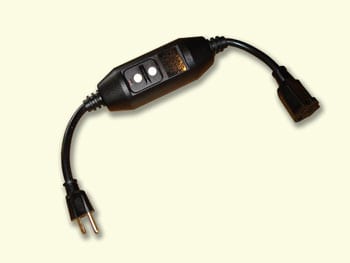Your pond may be visited by uninvited guests from time to time. The most common unwelcome visitors are frogs, toads, raccoons, birds and cats.
Tree frogs: cute little creatures which in themselves are basically no threat to fish. However, because they are so prolific, they can become a nuisance for the pond keeper. Fortunately, the number can be effectively controlled by a few tadpole-eating fish like Venustus, Anajennies, or Red Empress.

ANAJENY is a very rare fish from Lake Malawi. It is so rare that explorers of the lake do no know which part of the lake they inhabit! The only few which are collected are caught in a group of different fish which randomly come to feed on the sandy flats. Their whereabouts are otherwise unknown. The Anajenys are voracious tadpole and frog egg consumers with a short intestinal track making it a toxin-resistant type.
9″ beautiful pairs

RED EMPRESS is well known for its ability to clear up frog eggs. A beautiful fish native to Lake Malawi.
8″ adult fish
Call 305-248-777

VENUSTUS are great for consuming frog eggs and a great maintenance fish with a bright appearance, native to Lake Malawi.
Call 305-248-777
Toads: gruff-looking, brown land type frogs. All stages of the Bufo Marinus toad are toxic to all other animals. The eggs have a neurotoxin which will kill most fish that eat them. In addition, all hatching stages from tadpoles to tiny black toads are all very toxic to fish. The adult toads have a milky-type neurotoxin which is emitted by the glands on the head of the toad where its cheeks are. This animal is toxic to any animals which try to consume it. Fortunately, the eggs and tadpoles can be maintained by the same types of fish which consume tree frog eggs and offspring, ie, Red Empress, Venustus and Anajennies. These three varieties of fish are especially helpful due to their short intestinal track and predatory nature when it comes to frog eggs and tadpoles.
Raccoons: Raccoons can be especially menacing to fish, ponds, plants, equipment, food stored outside and the pond keepers themselves. If your pond is relatively shallow, raccoons will wade in, take your fish, eat just the heads and leave the bodies scattered about for the pond keeper to clean up. Raccoons have also been known to damage equipment which at times has led to draining the pond, leaving its inhabitants with little or no water. As interesting as a raccoon looks, they have no redeeming value to the pond keeper. In addition, they can be especially vicious when in a “have-a-heart” humane trap. We recommend that these critters be trapped by a very experienced person or company and removed from the premises.
Birds: Green herons, Great blue herons, White herons, White egrets, Night herons, Anhingas, Cormorants and others can be damaging to fish populations. These birds are federally protected and hard to dissuade once they have feasted on your fish. Herons have a tracking device which allows them to remember quite a number of pond locations and tends to visit at all different hours which makes them unpredictable. Fortunately, there are several deterrents for bird control. These devices include imitation bird predators like alligator statues and owls. In addition, there are motion-detecting sprinklers which work well in most cases. There is also a bird netting material which you can stretch over the pond, above the water level which makes it virtually impossible for birds to enter.
Cats: while it is nearly impossible for a cat to catch a pond fish, they do have the nasty habit along with raccoons of urinating in the water. Cat and raccoon urine can be deadly to fish if the pond is relatively small and the nitrite and ammonia levels are affected. This problem often goes undetected and tends to repeat itself. The motion detection spray device works especially well on cats.
Opossums pose no known threat to fish ponds.
The best deterrent to most critter problems (excluding toads and frogs) is a good- sized dog with an attitude. Of course, dogs also work well with uninvited people!
All in all, it is wise to take any measures necessary to solve your critter invasions or risk losing your pond’s inhabitants.

GFI Circuit – All pond equipment should be plugged into a GFI (ground fault interruptor) circuit. This protection device should be used for water pumps, aeration pumps, lighting and heaters. It helps protect against outdoor electrical shock. This unit has a built-in surge protector to protect from lightning. It is rainproof and also impact resistant. UL and CSA listed. It includes one outlet and 18” cord. It has 1875 watt capacity with maximum 15 amps.
Call 305-248-777
